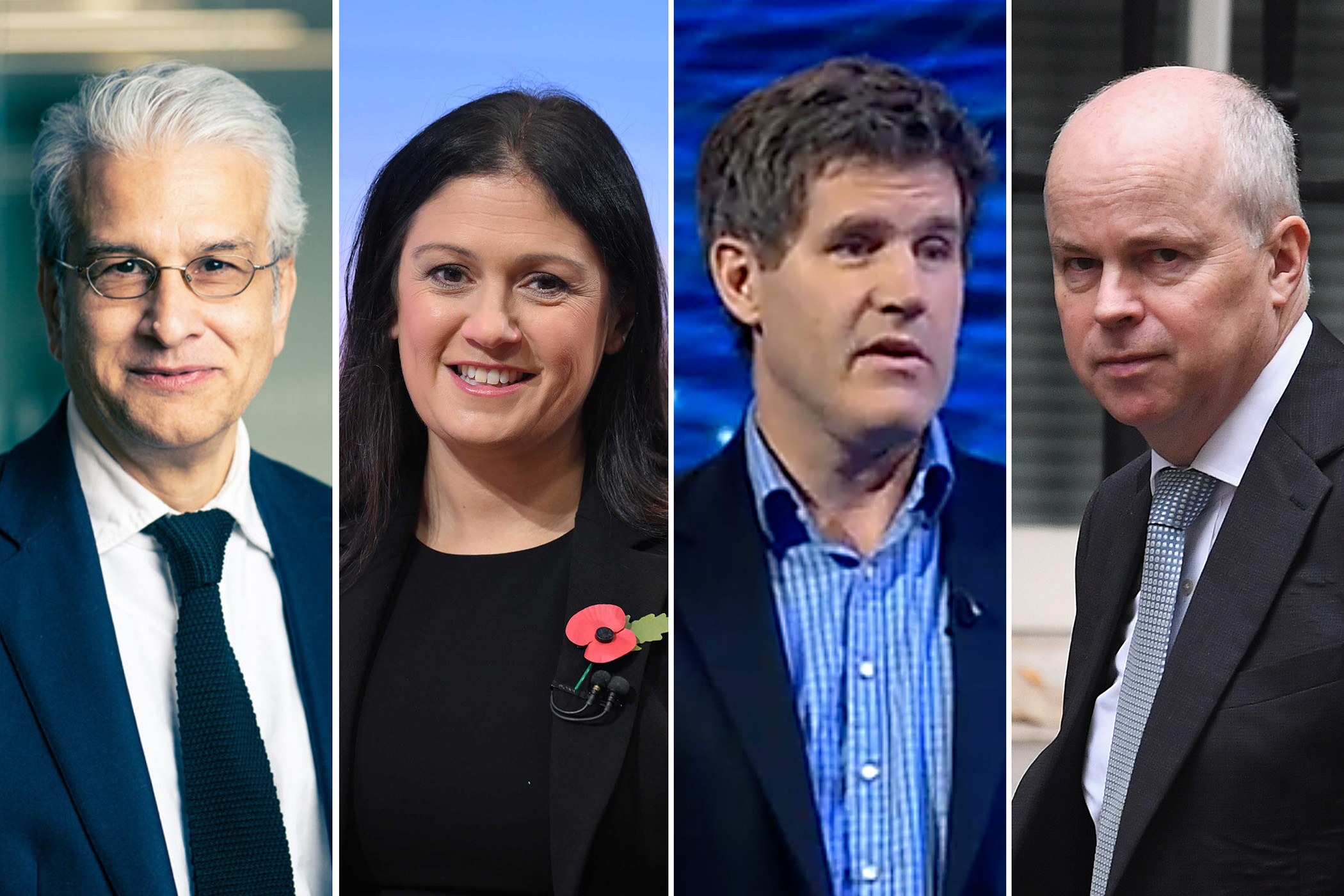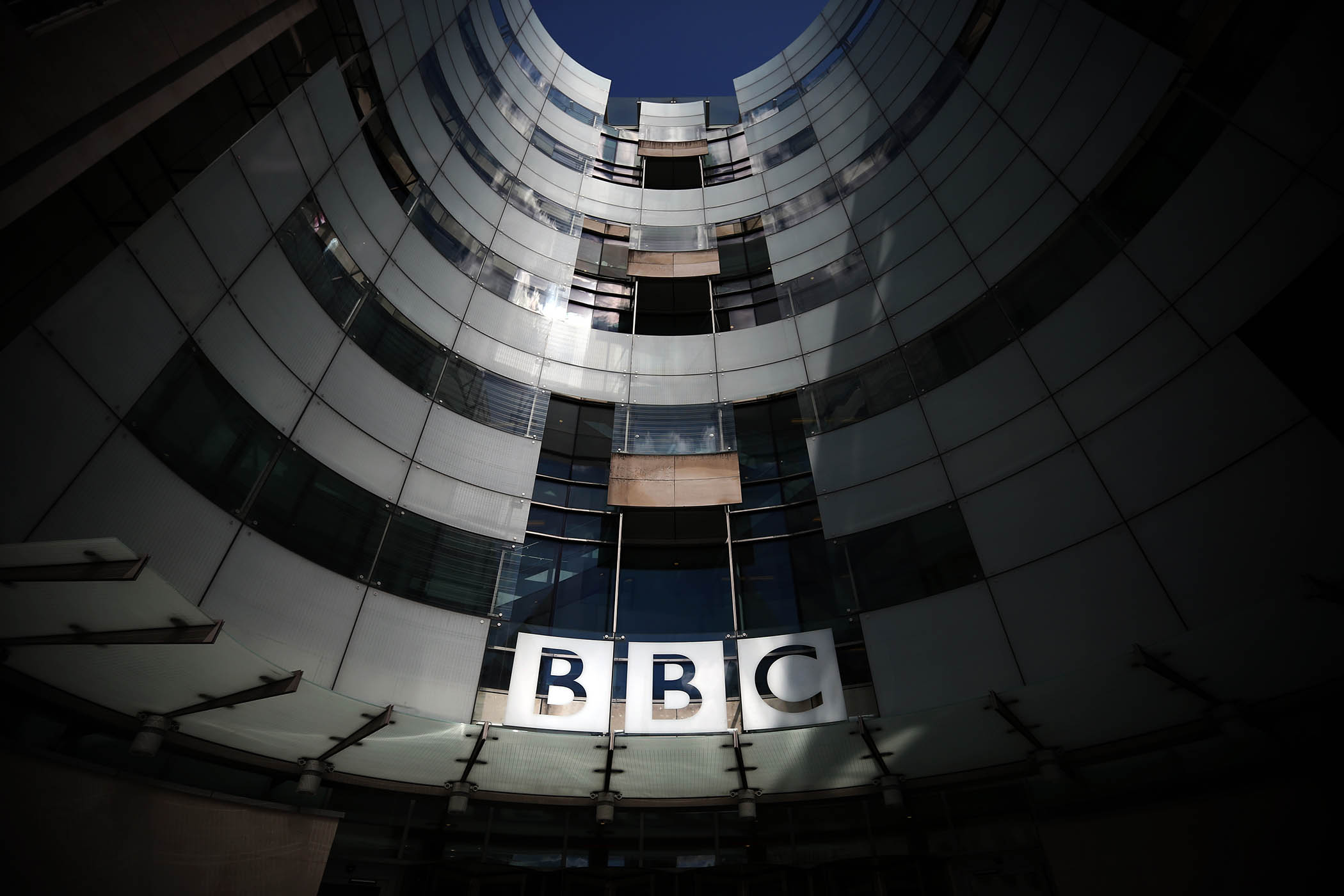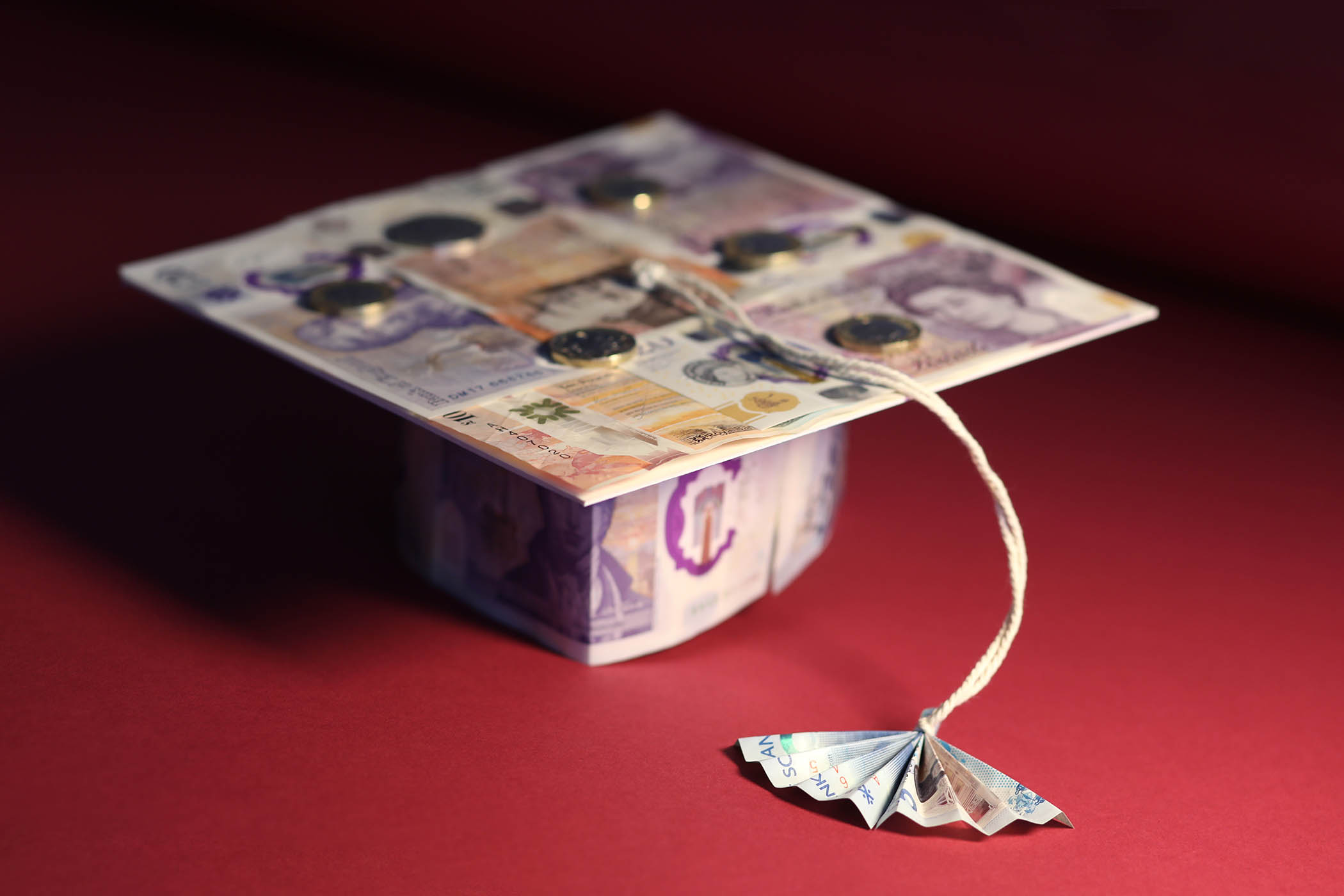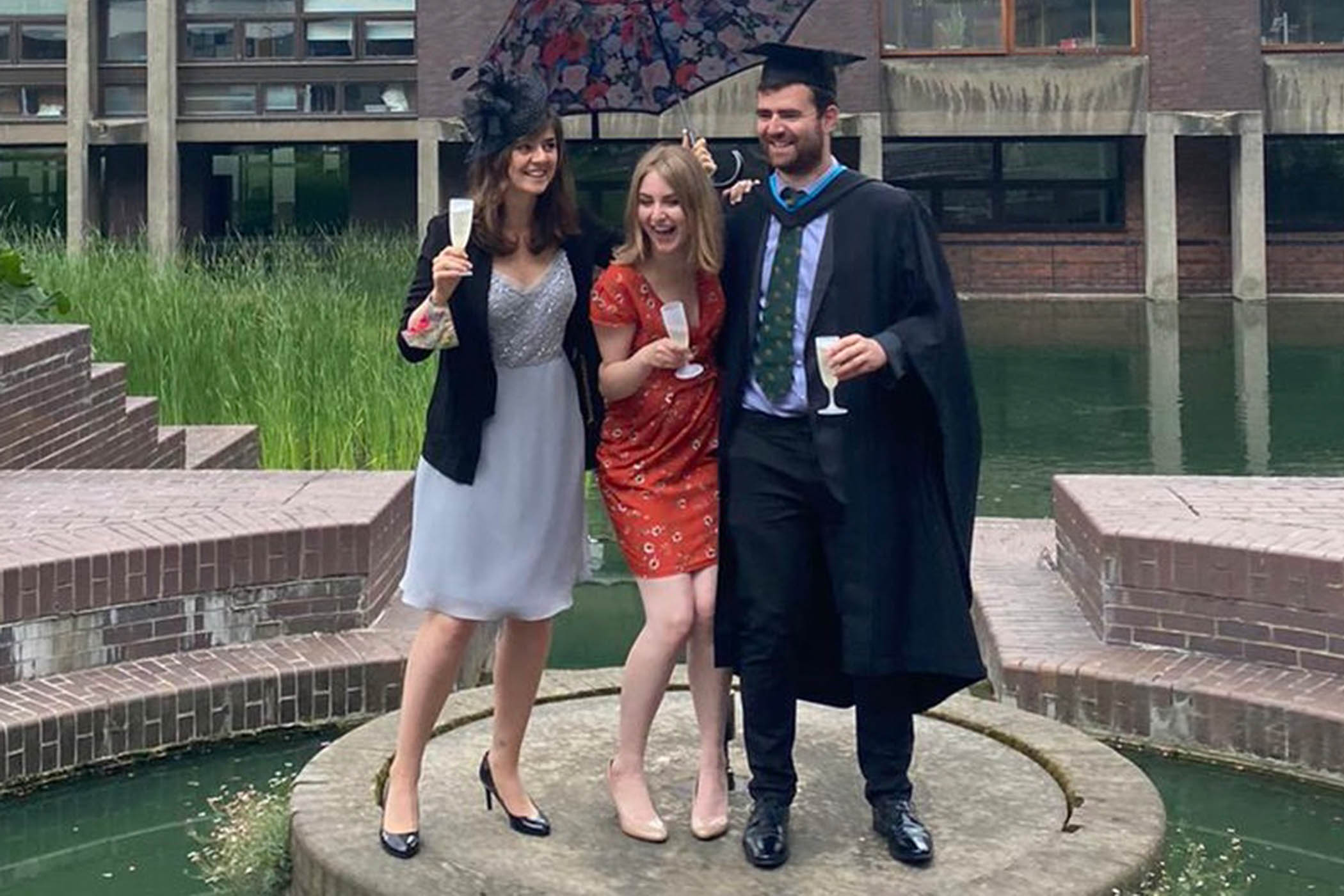Read more of The Observer's coverage of the BBC fallout here.
In a wood-panelled room in the prow of the old Broadcasting House, the directors general met for dinner. They were nearly all there – stretching back decades and up to Tim Davie, then the current DG, who had invited them all to join him.
According to one of the men who attended, it was an unlikely evening. By his account, it went like this: John Birt had prepared a few words, an unvarnished description of the domineering John Reith, the founding father of the BBC. The DGs stood and toasted Reith. Davie, too, made a toast, a knowing one: “To all of us, for surviving.” Greg Dyke, who was forced out over the BBC’s Iraq war coverage, joked: “You haven’t, yet.” And he didn’t. Roughly a year later, Davie was also out.
There is a mystery behind the resignations of Davie and the chief executive of the BBC's news division, Deborah Turness. The puzzle is not that there were resignations – there have been five BBC DGs this century and three have been forced out early – but the scale of the problem that caused them. Because the bad Panorama edit of a Donald Trump speech was a serious one, yes. But it was not an argument about whether the country was lied to before it sent soldiers to fight and die in Iraq, which led to Dyke’s downfall in 2004. Nor was it about the role the BBC may have played in enabling Jimmy Savile to hide in plain sight while he abused hundreds of children; the scandal that brought down George Entwistle in 2012. Those events sit in a different category from the Trump edit, and they leave the BBC to ponder a troubling question: what has changed? It used to take an explosion – something felt across the whole country – to unseat a DG. Can you do it now with a peashooter if you blow it often enough?
Why was nobody sacked?
In part, the tale of Davie and Turness is a boardroom drama; or – even more oxymoronically – a drama of committees, meetings and internal politics.
The body that oversees and governs the BBC, its board, never settles into a role for long, but some of its members point to 2021 as a moment that changed it in ways that are still being felt today. Richard Sharp took over as chair of the BBC that year. A former banker, he set out to remake the board so it was more commercially focused, more data-driven, more strategic. Some of its members welcomed the new focus; others saw it as a moment when fault lines began to appear that have not gone away.
On the business-minded side of the board, a question came increasingly to be asked: “Why, when something went wrong, was nobody sacked? There were no consequences. Some of the board thought Deborah Turness was defending her team past the point where they thought, ‘You should just dismiss this person because they’ve made a mistake.’” That frustration simmered.
And a lot went wrong. In 2022, the BBC DJ Tim Westwood was accused of sexual assault (and, last week, charged with four counts of rape). Last year, one of the biggest names in BBC journalism, Huw Edwards, pleaded guilty to making indecent images of children. And there were the two Gaza documentaries: one broadcast and then withdrawn after it was discovered that the child who narrated it was the son of a Hamas official; the other, about doctors in Gaza, commissioned but never broadcast by the BBC because it “risked creating a perception of partiality”. For all the BBC was getting right – Strictly Come Dancing, The Traitors, most of its news coverage – the problems kept coming. And then, this summer, the rap duo, Bob Vylan, stepped on to the stage at Glastonbury.
They had an hour-long slot on one of the smaller stages at the festival on Saturday 28 June. The BBC put them in a high-risk category of performers, and broadcast their set on a little-watched channel on iPlayer.
Oh my god, oh my god. It was off the scale. She was making direct incursions into whether the DG deserved to be in his job or not
Oh my god, oh my god. It was off the scale. She was making direct incursions into whether the DG deserved to be in his job or not
But the chants of “Death, death to the IDF” and some antisemitic comments by the singer went out live on a BBC platform. What happened over the following days pushed Tim Davie, improbably, to the brink of resignation. The board had to walk him back from it.
Newsletters
Choose the newsletters you want to receive
View more
For information about how The Observer protects your data, read our Privacy Policy
On the Saturday afternoon of Glastonbury, the BBC took the recording of Bob Vylan down from the iPlayer, but it was not enough to satisfy their critics, and by Sunday evening they realised that. So a new statement was prepared to go out on 1 July, the Monday morning, apologising and adding some lines about the BBC’s position on antisemitism.
It did not stop the Labour secretary of state for culture, media and sport, Lisa Nandy, making what one BBC executive called “a very forceful statement” in the Commons that afternoon; or the chief rabbi, Sir Ephraim Mirvis, taking to social media the following morning to describe the episode as a “time of national shame”, the airing of “vile Jew-hatred”.

Michael Prescott, Lisa Nandy, David Grossman and Robbie Gibb
Lisa Nandy ‘off the scale’
More importantly, the BBC’s new position did not stop Nandy telephoning Samir Shah, the chair of the BBC board, privately. Inside the BBC, what Nandy said on that call was seen as “wildly inappropriate”. In the words of one person in the know: “Oh my god, oh my god. It was absolutely off the scale. She was making direct incursions into whether the DG deserved to be in his job or not. She was essentially telling the BBC chairman what to do, telling the chairman to sack him, effectively. I mean, she obviously said she wasn’t, but that’s how everybody read it.”
A spokesperson for Nandy did not deny that she had called Shah but reminded The Observer that both she and the BBC had acknowledged serious failings in the broadcasting of the Bob Vylan set at Glastonbury.
“The culture secretary has been consistently clear that the BBC is editorially and operationally independent, and that her role is to hold the BBC to account on behalf of licence fee payers.” By the middle of the week after Glastonbury, the team close to Davie knew he was on the edge – “I think his job was looking very perilous” – and it would only take one more thing to push him over: another heave, either from Nandy or the chief rabbi.
There was certainly a feeling that Nandy’s response had been over the top, and the chief rabbi’s too, for different reasons. For some near the top of the BBC, that is the heart of what they are up against. How can the BBC respond proportionately when its critics turn editorial complaints into attacks on the whole institution, its values and its leadership?
Nobody writes about the BBC board without observing that it is a strange beast
Nobody writes about the BBC board without observing that it is a strange beast
Unwittingly, by Wednesday, Sir Ephraim Mirvis had put himself – in the minds of the handful of BBC executives who were in the know – in the role of judge, jury and potential executioner of their director general. They knew Mirvis was considering some live media appearances. If he went on radio and television and, like Nandy, questioned Davie’s leadership, that would almost certainly be the end of it. When the executives heard that Mirvis had decided not to do those interviews after all, a sigh of relief frosted up the windows at Broadcasting House – prematurely, because the next crisis was already brewing in a bland BBC meeting room somewhere. This one would come from within. The BBC board, and its subcommittee on Editorial Guidelines and Standards - the EGSC - turned what could have been a manageable problem into a catastrophe.

Strictly Come Dancing
A strange beast
Nobody writes about the BBC board without observing that it is a strange beast. Of the 13 seats around the table, five are filled directly by the government; the chair and the four non-executive directors (NEDs), who represent the nations of the UK.
Since 2021, the NED for England has been Sir Robbie Gibb, former BBC journalist turned spin doctor for Theresa May and, later, owner of the Jewish Chronicle, appointed to the board by Boris Johnson. Ten years ago Gibb was making political programmes for the BBC. He was known for a mantra of “aggressive impartiality” and he had a system to apply it. He carried around colour-coded spreadsheets – a colour per hot topic (Europe, immigration, whatever) – and a list on each coloured sheet of the guests his programmes had interviewed and the reporting they had done. For the BBC at the time, it was almost laughably organised – “He wasn’t a seat-of-the-pants kind of bloke!” – but he was methodical to a fault.
Some of Gibb’s critics describe him as “charming… good fun… effective.” One fellow board member, not a political soulmate, even gives him credit for being “broadly correct about the agenda he pursues”. But nobody on the board who has spoken to The Observer has been willing to say that they trust him, because there is an agenda – that the BBC’s output is dominated by the views of a left-of-centre metropolitan elite. And Gibb pursues that issue with a focus that colleagues have described as “single minded” and “obsessive”.
The core charge against Gibb – not only now but since he joined the board – has been that he has set out to destroy the BBC from within. “If I don’t get my way, I’ll blow the place up,” he said 18 months ago, within earshot of more than one BBC journalist. Gibb himself has said enough publicly for us to know that he sees himself as far from an enemy of the BBC; actually, a critical friend. And, to be fair, some of his opponents allow him even that.
The EGSC was created to hold the BBC to the standards it sets for itself; to keep it honest. The surprise in the last two weeks has been that this obscure subcommittee has become the crime scene in the drama which has engulfed the BBC.
It was at the EGSC that the problem of the Trump edit on Panorama was first raised in January. The most boiled-down backstory to that moment is this: the committee appoints independent editorial advisers to dig into whatever topics it chooses. Robbie Gibb asked his friend Michael Prescott – political editor of the Sunday Times 20 years ago and a PR man since then – to apply for one of the advisers’ jobs. He was interviewed, by a panel, not just by Gibb, and appointed.
Gibb then lobbied Tim Davie directly to appoint a researcher to add muscle to the EGSC’s investigations and for one person in particular: another close contact of Gibb’s, the former Newsnight journalist David Grossman. At this point, in the minds of his critics, Gibb had got his gang together.
The story then goes that Gibb chose the areas Grossman would investigate and Prescott would advise upon. The reports which Grossman compiled were mainly fair and rounded, but all of them contained one or two hand grenades. And it was those grenades which Michael Prescott set off all at once in the so-called Prescott dossier which was eventually leaked to the Daily Telegraph.
Institutional capture
That telling is a vivid account of what looks like institutional capture. It is backed up by more than one person, but there are holes in it. Robbie Gibb ordered up many of the reports for the EGSC which promoted his agenda, but not every one. And even if it had been every one, the BBC would still have to account for an original sin; from the beginning, why did it not spot the Trump edit for the problem it was?
“It was a small, big problem,” one senior executive says. Small because it was not the Iraq war or Jimmy Savile; big because it involved Donald Trump and because an important principle was at stake. Even if no one outside the BBC had complained about the edit – and they had not – the BBC knew at the turn of 2025 that it had made a mistake, and it should have been willing to admit it, unprompted.
But in the room at the EGSC, although some people were troubled by what they had learned, no one suggested going public. And almost everyone who was anyone was there – among them Tim Davie, Samir Shah, Deborah Turness, her deputy Jonathan Munro, Robbie Gibb and Michael Prescott. Recollections vary about how long they spent talking about Panorama, but nobody thinks it was more than five minutes: “It didn’t strike any of us at that time as a significant issue. And that’s maybe where the whole thing began to unravel. Nobody left the room thinking, ‘Oh my god, we’ve got a real problem with Panorama.’ It just wasn’t like that.”
So the edit was treated as a moment for internal “learnings”, not for public acknowledgment. It rattled round as an issue inside the BBC for months – not noisily – until it reappeared, dramatically, late in September. Prescott had left the BBC by that point, but he sent a letter with his criticisms of it to every board member individually, to Lisa Nandy and to Ofcom. He highlighted the Panorama edit but also coverage of Israel and Gaza, trans issues, racial politics.
The Prescott dossier
Board members were worried, by what was in the letter as well as the prospect of it leaking, and they started to pull together a response and a plan for the chair, Samir Shah, to meet Prescott to talk about it.
The board met again at the BBC’s north of England headquarters in Salford on 18 October and, again, failed to agree a line. So the big picture is this: a serious editorial problem had been discovered in Panorama by a group of people whose colleagues viewed them with suspicion. And in the nearly 10 months between the BBC board and management finding out about it, and it being leaked to the Telegraph, almost nothing concrete had been done because, “we couldn’t agree if it was a problem or not. We certainly couldn’t agree what type of problem it was.”
The Telegraph published its first splash on the Prescott dossier on Monday 3 November. The next day, the culture, media and sport select committee wrote to the chair of the BBC board to ask for an explanation of Prescott’s claims. That same day, Deborah Turness had an apology for the Trump edit ready to roll, and was frantically urging the board to send it. It did not, and still had not by Saturday 8 November, when Trump’s spokeswoman, Karoline Leavitt, waded in and described the BBC as “100% fake news”. The threat to sue followed, initially for $1bn and now, according to Trump himself, for up to $5bn.
A lot of people in BBC News blame the inertia of the board for costing Turness her job. It almost certainly contributed, but something else was going on. Over the week before Turness resigned, the BBC board started turning against her, and by Saturday morning the situation was terminal. The “two, three, four hardliners on the board who wanted Deborah to go” – the politically appointed non-executives representing the nations of the UK, Robbie Gibb among them – had turned into a majority of those who were consulted. There was not a formal vote, but the chair could do the maths.
Tim Davie and Deborah Turness talked throughout Saturday and The Observer has been told that he asked her to delay announcing her resignation until he had decided whether or not to go as well. On Sunday morning he did, and called a shocked board to tell them so.
The strongest argument for Samir Shah staying in post is a very weak one: because the BBC cannot afford a third resignation
The strongest argument for Samir Shah staying in post is a very weak one: because the BBC cannot afford a third resignation
They resigned for different reasons: Tim Davie because he was worn down by the attritional damage of crisis after crisis; Deborah Turness to take responsibility for an individual mistake. A small, big one.
Together, they wanted to announce their departures on Sunday morning. But they were told they could not, for reasons which give as clear an illustration as you will ever find of the unresolved tension between the BBC’s idea of itself as a modern media organisation and a national institution: it was Remembrance Sunday. So the news dropped, respectfully, later that evening.
An accessory after the fact
Why did a relative peashooter like the Panorama edit become lethal for the BBC? Plenty of senior people inside it blame an ambush orchestrated by Sir Robbie Gibb, but even they would admit that, on its own, that is too simplistic. In the way that it dealt with the crisis, the BBC itself was an accessory after the fact, clearly.
In the most polarised environment in which the BBC has ever had to operate, small incidents, small insults, do have outsized effects, and the cumulative effect can be to make the top jobs almost impossible. Somehow, before it even goes looking for its next DG and head of news, the BBC knows it has to fix that problem. The mountain it has to climb before it can do that is enormous, and things may get worse before they get better. If they get better.
First, it is not at all clear that Samir Shah can survive as chair. Plenty of people inside the BBC think he should have insisted that Davie stay and, if need be, offered his own resignation instead. The strongest argument for Shah staying in post is a very weak one: because the BBC cannot afford a third resignation.
Second, will the sticking plaster that the BBC has put over its news operation come unstuck? Deborah Turness’s deputy, Jonathan Munro, has stepped up, but uncomfortably. Colleagues say he is at least as implicated as she was in the limited and defensive response to the Trump edit, probably more so. Some have made it clear already that they do not think he is the right man for the job, and the BBC is looking for ways to shore up his position. An old timer or two may be dragged out of retirement to help. Thirdly, the Trump legal action is a gift to BBC critics in the media like the Telegraph. It looks like a house fire, even if it is just a firework display.
And those are the easy problems, the bigger ones are these: Reform UK, currently leading in the polls to form the next government, has a manifesto commitment to end the licence fee; and, in the meantime, people on the right are being invited to stop paying it by public figures, who say the BBC is institutionally biased or antisemitic. On the left, people are telling a younger generation, who do not watch linear TV or listen to the radio, that the BBC has been taken over by conservative interests, hence the soft-pedalling of issues like Palestine, housing, mental health and race.
In a very dark hour for the BBC, the determination inside to look for signs of hope inside is impressive. One executive tried this argument out for size: “This could be a good thing for the BBC. A massive editorial failure, but it does mean that it’s much harder for the culture warriors to do their weaponised, subtle work. This has blown them out into the open. It would be harder now to put a DG in with political baggage or a leaning in the culture wars than it was before.”
The BBC needs all the creative talent it can find. But ideally making brilliant content, not the best argument it can muster when it is in a terrible jam.
Correction: An earlier version of this article carried an incorrect image of David Grossman of the New York Times, not of the BBC. We apologise for the error.
Photographs by Carl Court/Getty; Hanover Communications, Jeff Overs/PA, Youtube, Leon Neal/Getty Images, BBC/Guy Levy
More from The Observer



